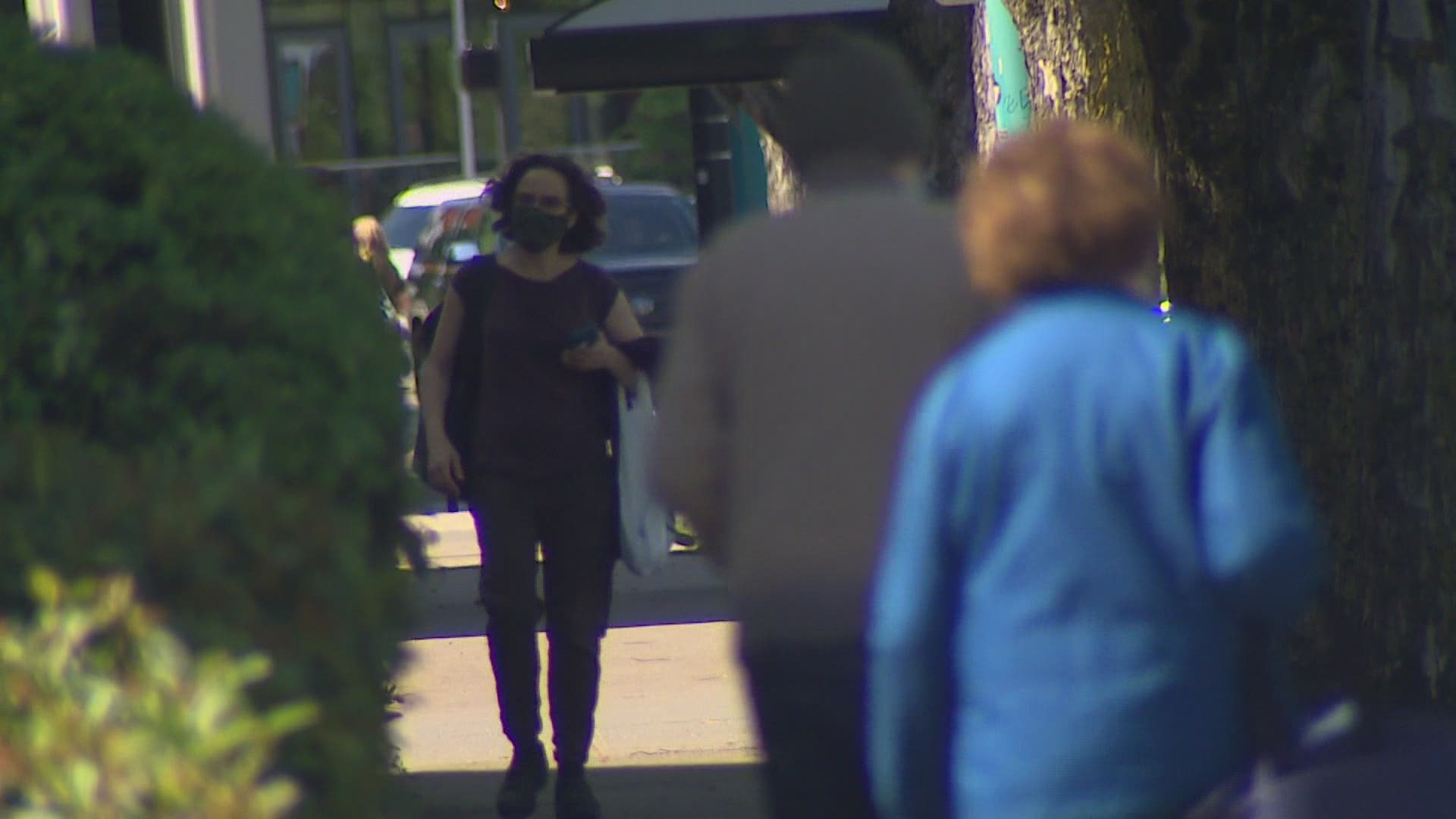SEATTLE — After months of mask mandates, many Americans are breathing a sigh of relief with news that federal and Washington state officials are dropping most face mask requirements for fully vaccinated people, both indoors and out.
It’s a move that makes the end of social distancing feel closer, except for some.
Emerging research has shown while vaccines are safe and proven effective for the general public, some people with immune deficiencies may not generate as much protection from the COVID-19 vaccines.
Dr. Josh Hill, a vaccine and infectious disease researcher at Fred Hutch Cancer Research Center in Seattle and doctor with University of Washington Medicine, said that impacts likely thousands of people living in Washington state who will need to keep their guard up as social protections are dropped.
“Unfortunately, it's get your vaccine, but then still continue to live your life as if you're not vaccinated,” he said.
That can include people undergoing chemotherapy for cancer, those living with lupus, and on medications to prevent the rejection of organ transplants, or to control some forms of arthritis. A pre-print April study (that had not yet been peer reviewed) found patients being treated for chronic inflammatory diseases (CID) “exhibit impaired SARS-CoV-2 vaccine-induced immunity,” and a May Johns Hopkins paper found just half of organ transplant patients studied had coronavirus antibodies after two doses of the vaccine.
Hill said he’s still encouraging patients to get vaccinated, it’s just unclear how much protection it will provide. That can be difficult news when vaccination presented a light at the end of the tunnel.
“There’s definitely a lot of frustration,” he said. “I think there’s frustration and disappointment both from individuals who are affected by cancer or other immune-compromised conditions, but also from their healthcare teams and their providers that that message gets sort of lost in overall public health messaging.”
The Centers for Disease Control and Prevention (CDC) included the guidance for immune-suppressed people as a footnote to the mask announcement Thursday.
“People with immune disorders are typically excluded from trials of experimental vaccines, and this was the case in the COVID-19 vaccine trials,” said Dr. Anthony Fauci, NIAID director. “This new study will characterize the features and adequacy of immune responses to COVID-19 vaccination in people with a range of immune deficiencies and dysregulation syndromes and will provide valuable information about benefits and potential risks in these individuals.”
Pregnant people have also had to make their decision on vaccination with little research, since they were excluded from vaccine trials.
The National Institutes of Health is currently recruiting people with immune issues for a study on COVID vaccine efficacy. NBC News recently profiled a woman with common variable immune deficiency (CVID) taking part in the study.
Hill said as researchers work to learn more about vaccine response in these patients, he’s encouraging them to avoid large crowds, and continue wearing masks.
Hill added this is another reason for people to consider getting vaccinated: to protect those around them. It also exposes the danger to others of going unmasked while unvaccinated.
“That’s the core of it, that’s the reason we need the general population to get vaccinated and to try to hit these aspirational goals to achieve some sort of herd immunity, if that’s still possible,” he said. “It’s to protect our vulnerable patient populations within the community who either can’t get vaccinated for some reason, or who may not have as good of a vaccine response and remain susceptible to infection. So that’s really a critical piece of the messaging that I think sometimes gets missed.”

